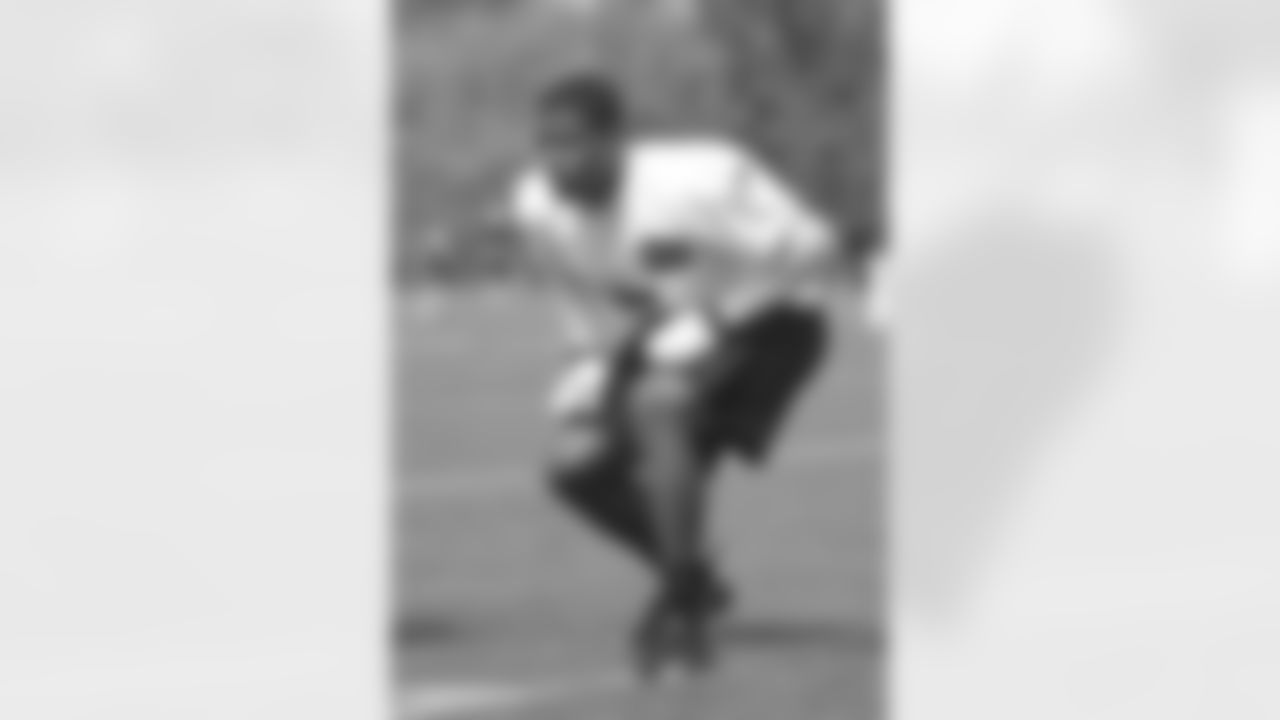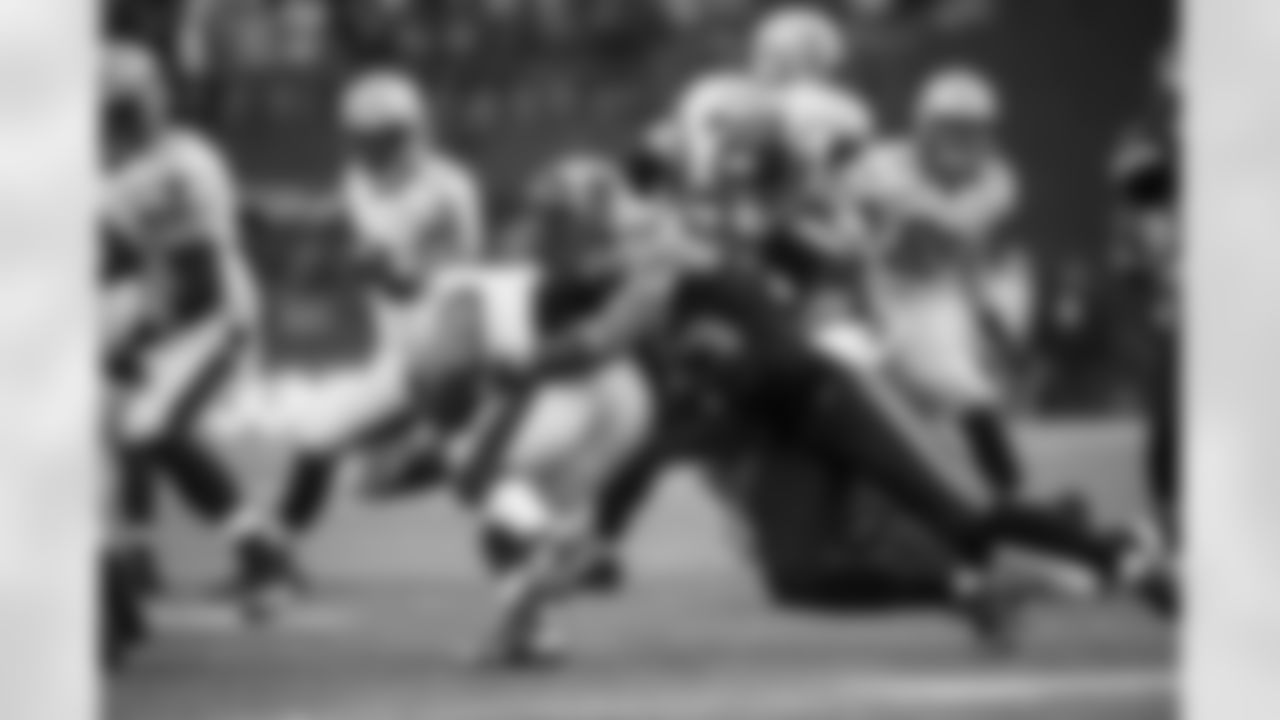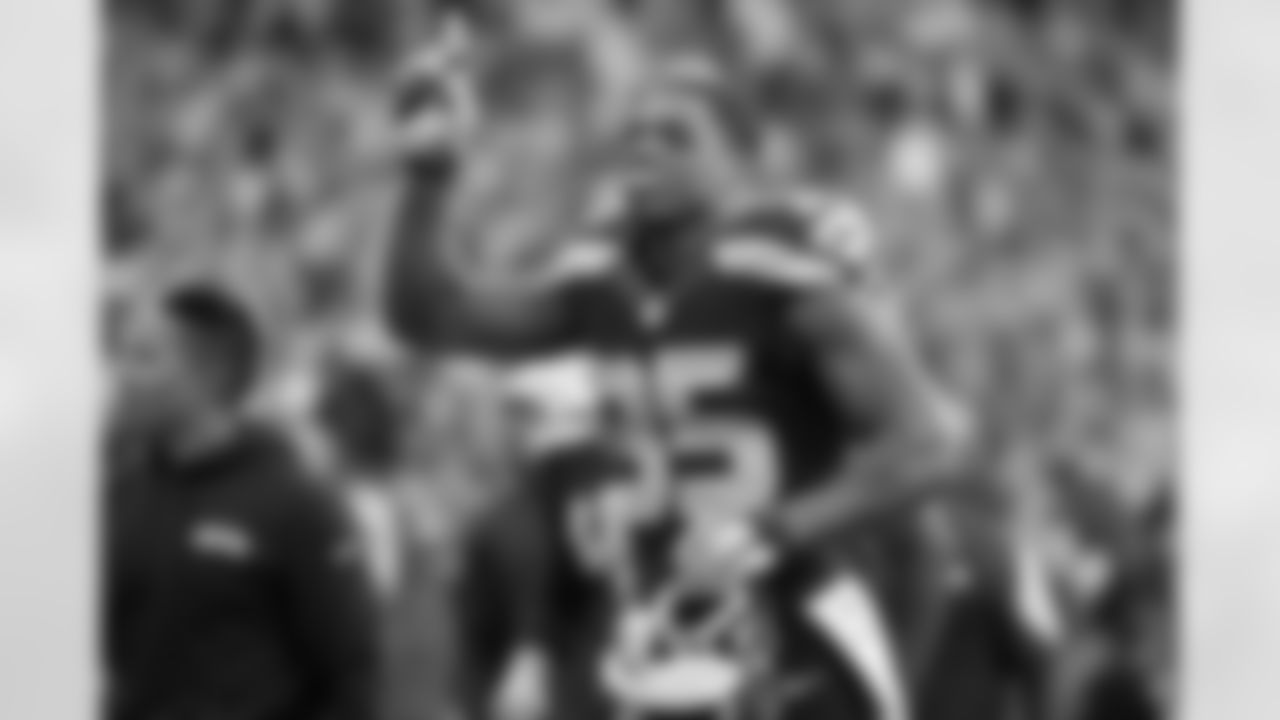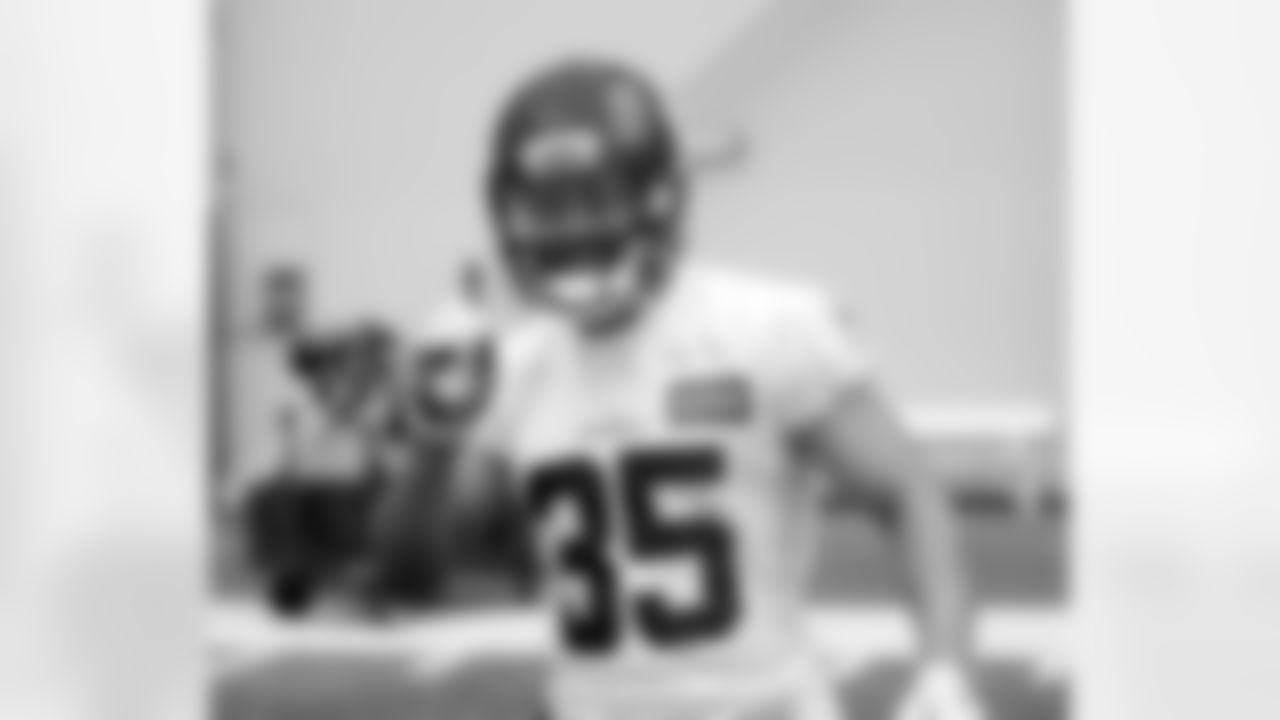After continuing to pursue his playing career through the 2019 season, signing with the Seahawks in training camp, then with New Orleans late in the season, DeShawn Shead moved onto a post-playing career in software sales.
He was good at it—really good—and liked the work he was doing with Icertis, but Shead also kept hearing from coaching contacts with the Seahawks and other teams who were pushing the idea of coaching.
Shead was intrigued by the idea, but he also was concerned about the hours that come with an entry-level NFL coaching job, particularly with two young kids at home, but when he realized that his wife, Jessica, was fully on board, he decided to take Seahawks coach Pete Carroll up on his offer to join Seattle's coaching staff, and now Shead is beginning his coaching career as a defensive assistant/defensive backs coach.
"It's always been something I was very interested in," Shead said. "I've always been a captain at every level that I played, so I find myself just coaching naturally. I love to see when you tell somebody something and then teach somebody something, and they go out there do it successfully. I've always had that in me.
"One thing I was worried about with coaching football—you know, I've played college football and I've played NFL football—so what kind of scares you a little bit is the hours that you put in, right? So that was one of the things that kind of steered me away."
So with those concerns about work-life balance, Shead spent more than a year at Icertis, thriving in a sales role, but during that time, former coaches in Seattle and Detroit continued to bring up the idea of coaching, and he and Jessica kept talking about it, and if anything it was Jessica talking her husband into chasing his coaching dream rather than the other way around.
"She was actually very supportive, probably more on board than I was at the time," Shead said. "She'll tell you that multiple coaches have called me and reached out to me like, 'Shead, let me know when you're done,' they gave me job offers to go coach. And even a few coaches here told her, 'Hey, when Shead's done, let me know because I'm getting him. I'm bringing him over to my staff.' So she kind of had an idea. Her being supportive was huge."
And in some ways Shead's transition from player to coach began long before he played his final game or signed his final contract. Throughout his long coaching career, Carroll has at times identified players who might someday become good coaches. When that happens, Carroll might spend a little extra time with that player sharing some coaching wisdom along with the typical coach-player relationship. A good recent example is current Bills special teams coordinator Heath Farwell, who played for Carroll from 2011-2014, then began his coaching career with the Seahawks in 2016.
Carroll saw similar potential in Shead, who began his career in 2012 as an undrafted rookie out of Portland State, and went on to eventually become a special teams captain as well as a starting cornerback.
"We've stayed we stayed in contact for a couple of years here, and he's always been one of our favorite guys, because he's just one of the most true-blue guys we've ever seen in the program— hard working, dedicated smart, creative, tough," Carroll said. "I mean he had all of the elements that we love in the program, big chip on the shoulder, he had to always prove it. So we just kept in contact, and I talked to him a few years back that, 'If you ever thinking about it, let's talk. There'll be a conversation waiting for you.'
"He went into the computer sales, business and just kicked butt and became one of the top sales persons in his organization in 18 months or something like that. When I hear that story I go, 'Well of course, that's what Shead would do.' So as we talked about it and as the season was approaching—we talked last year about the upcoming this year—so we just stayed with it."
While Shead's coaching career is only a few months old, he has already made a strong enough impression that Carroll thinks his former player will be able to do big things in his new line of work.
"We brought into this program just an extraordinary competitor, a guy with character and integrity and toughness and smarts and all that, and you can't get enough guys like that around the program," Carroll said. "Interestingly, he's carried over our football and he has retained it and maintains a really good command of what we did, and the techniques of the cornerback position in particular, as well as the safety spot—he played all over for us, big time special teams player for us. So he just has a lot to offer. A lot of guys can play and they don't take that stuff with them; he did. And he's very sharp. So I expect really big things from him, and I think he's going do a great job immediately, but down the road, we're going to see DeShawn Shead do some great stuff. He's really talented."

Even if Carroll saw Shead as a potential coach when he was still playing, that wasn't necessarily on Shead's mind. But when the two talked at a 2019 retirement party for Cliff Avril, Carroll put the idea in Shead's head, and two years later, after mulling over a few different offers from different teams, Shead decided to begin his coaching career where he spent most of his playing career.
"You know, being a captain here on this team at the Seahawks, taking that leadership-type role and being able to talk to the players, being able to help bring in the younger guys," Shead said. "We used to have a saying in our DB room, 'Each one, teach one,' and I took that to heart, and I've always done that and I've enjoyed doing that. It's a passion. It's a passion for me to be able to teach and put the time in and put the effort in and then see it come to fruition, that's my passion.
"So then after I was in that transition, whether I was going to play, I think it was right after the (2018) season, I remember talking to Coach Carroll, we were at Cliff Avril's retirement party. And he was like, 'You know, D-Shead, I know you're still trying to play. I know you're going to play forever. But just to let you know, if you're ever interested in coaching, give me a call because we'd love to have you on the staff.' So, and that was a few years ago. So he did plant that seed. That's the first time I remember him planting that coaching seed."
And while there were other opportunities, starting his coaching career in Seattle was the perfect fit, not just because his family calls it home, but because he already knows the defense and many of the other coaches well.
"It's very special," Shead said. "Best case scenario to come here in Seattle. We have a home here. This has been my home for the past nine, 10 years, from playing here. So to come here to a system I know, great coaching staff—they know what it takes to win, how to build a team. You've got Coach Carroll that I can learn a lot from, Coach (Ken) Norton, who has a lot of knowledge, who I've learned so much from already. So just to come on Coach Norton's staff was a blessing to have this opportunity and start here, and I'm glad I'm here."
In an alternate universe, one in which Shead didn't tear his ACL in a playoff game in January of 2017, it's possible Shead might still be playing rather than starting his coaching career. The 2016 season saw Shead take on a full-time starting role for the first time, and it appeared he would head into free agency for the first time ready to earn a substantial multi-year deal in Seattle or elsewhere after appearing in 31 games the previous two seasons, starting 21 while recording two interceptions, 22 passes defensed and 136 tackles in the best two-year stretch of his career. Instead, that knee injury led to him signing a one-year deal with Seattle in 2017, a season in which he would play only two games late in the year. An obscure rule caused Shead's contract to toll into 2018, but the Seahawks released him to allow him to test the free agent market. Shead signed with Detroit in 2018 and played 12 games, but still wasn't at his pre-injury level. He spent camp with the Seahawks in 2019 but was released before the start of the season, then after a brief stint with New Orleans late that year, his career ended, as is the case for the vast majority of NFL players, not necessarily on the terms he would have liked.
It might seem natural to look at Shead's career—the breakout 2016 season followed by an injury, one that in all likelihood cost him a pretty big pay day—and wonder "what if?" But the player who actually missed out on those extra seasons and potential millions insists he has never thought that way.
"I'm a big believer in the power of the mind, so there's times and conversations that people come up like, 'Man, Shead, if only you didn't get hurt, you could've made X amount of money, contract year.' But in my head, every single year I've been in the NFL, I've made more money than I ever had the previous year. Looking at what I did have, rather than I didn't. It never came, so I never had that, I don't dwell on that fact. If I sit there and dwell on like, 'Oh, I could have made X amount of money, X amount of millions if I didn't get hurt,' that's not going to do anything for me other than just keep me in the past and not allow me to move forward to where I need to go.
"People ask me that all the time. I never dwell on that. Maybe my wife may bring it up a couple times, but she knows exactly my mindset as well too. Because when the injury happened, literally before we were gone, once they said, 'All right, this is a torn ACL,' I said, 'OK, cool. When can I get surgery? When can I get this fixed to get going again?' At that point there's nothing you can do but stay optimistic and keep a positive mindset.'"
And with that positive mindset, Shead kicks off a new career looking to capitalize on a lot of the same traits that helped an undrafted player out of Division I-AA Portland State last almost a decade in the NFL, win a Super Bowl and play in another, become a starting cornerback, and be voted special teams captain by his teammates. Particularly relevant to Shead's new job is the versatility he had as a player. During his time in Seattle, Shead played both strong and free safety, nickel corner, and was a starter at right cornerback, so regardless of what defensive back he is coaching, he will be able to teach that position.
"It helps tremendously," he said. "I've started games at corner. I've started games at strong safety. I've started games at free safety. And I started games at nickel. So, just to be able to have that perspective from every single spot in the DB room and just to know how to play different leverages, how to play different coverages, how to play different techniques, and just seeing the game as a whole... Just my mindset of seeing the game as a whole, I could be able to help the corner open up his mind to different formations or recognizing different tendencies. As well as the safeties, the run fits, where they should be looking, where their keys are going, where they should go, but also when they get into man-to-man coverage."
Entry-level coaching jobs in the NFL entail more than just teaching players the defense or coverage techniques, it also means data input, doing research that helps other coaches, doing cut-ups of game and practice tape and other off-field work, and Shead's time in the software sales world has helped with that aspect of the job.
"I've been loving everything, and my previous job actually helped prepare me for that," he said.
As for the on-field coaching, Shead could be taking on a bigger role than is typical for a first-time coach because Nick Sorensen, previously Seattle's secondary coach/nickel specialist, recently went to Jacksonville to become the Jaguars' special teams coordinator. So far at least, Seattle has not filled that role, which means Shead could be taking on more responsibility under defensive passing game coordinator Andre Curtis.
"I'm not sure exactly how everything will play out," he said, "But it's me and Coach Dre in the room, so I've taken over a lot of responsibilities that (Sorensen) has done. So that role has changed. Also, helping along with the other side, part of the (quality control) type jobs to do—data input, things like that. So kind of a mixture, doing it all again, once again. Once again doing it all, but I wouldn't want it any different, and I'm happy for the opportunity just to go and come in here, and not only help the players be the best they can be, but to show everybody in this organization that I'm here to be a great coach."
One interesting element of being a young coach for the team he played for for so long is that Shead is coaching players who used to be his teammates. Shead and linebacker Bobby Wagner were rookies together in 2012 and teammates through the 2017 season, and in his own position group, Shead was teammates with cornerback Pierre Desir in Seattle and with safety Quandre Diggs in Detroit. It was a bit of an adjustment for players who were used to having Shead as a teammate, but they already recognize his potential as a coach.
"It was funny at first, because we were on the Zoom calls, and he had already switched his name the 'Coach Shead,'" Wagner said. "It went really fast to just put the coach of front of his name. But it's fun, you like to see guys that you played with come back into the building be able to be around us. I'm excited to have him here, I think he has a lot to offer. I think this is the beginning of hopefully something special."
Just what that "something special" looks like remains to be seen, but after just a few months as a member of Seattle's coaching staff, Shead has already decided he wants to go as far as he can with this new career, hopefully someday becoming a head coach.
"At this point right now, I definitely want to be a head coach," he said. "Coming in, to be honest, I knew I wanted to be a defensive coordinator. I knew that. That was first and foremost. I knew I wanted to be a defensive coordinator. Wasn't too sure on, do I want to be a head coach? Because I'd never seen that side of things. Now that I've been here for a few months, I'm enjoying every day, and my goal is to be a head coach. But it takes steps, right? So I'm setting my goals. My whole goal is to start—you've got to climb up the ladder, right? So start on this number-two spot as assistant DB coach and eventually become the head DB coach, work from there to eventually be a defensive coordinator, and then to head coach.
"I know that you always got to start at the bottom. You got to be humble. You got to be willing to learn. In this job you got to be willing to serve, and be willing to follow. Before you can lead, you got to learn how to follow. And there's great leadership here from Coach Norton and the way he's been having us do different things such as give the third-down presentation, which the head DB coach does every week in this off season, just giving us different opportunities to practice being the head guy. And I don't know if they do that anywhere else, but that's been amazing. I've been loving everything about it. So just getting a feel of when that opportunity comes, he's already prepping us for that. So I couldn't have come to any better staff to start off this coaching career."
DeShawn Shead is returning to Seattle as a defensive assistant/defensive backs coach, his first NFL coaching job. Shead played seven seasons in the NFL, six with the Seahawks.






































